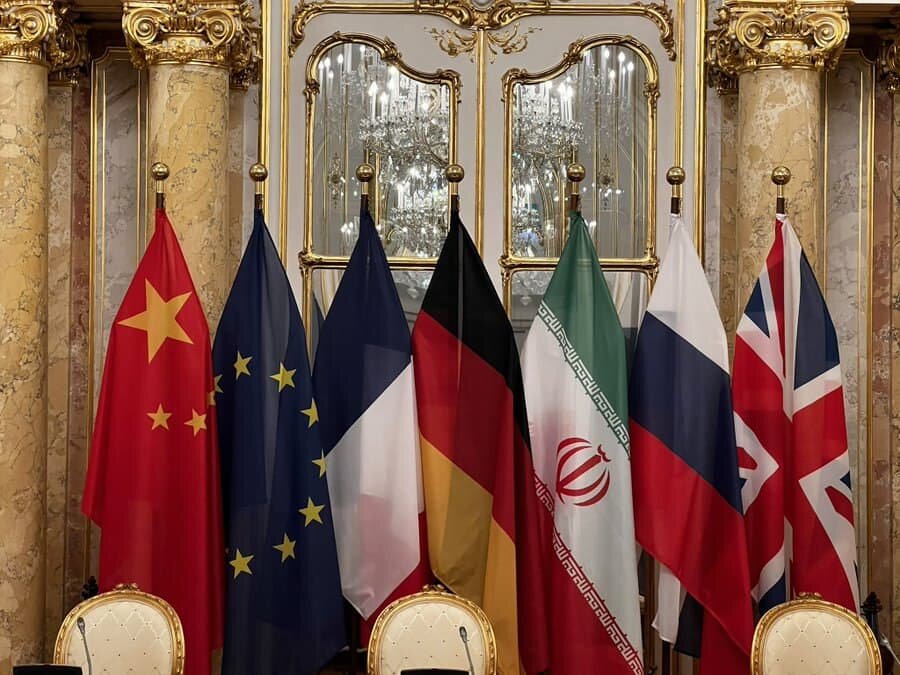Battle of wills: First step in Vienna battlefield

TEHRAN - Needless to say, reaching a good agreement requires the will and seriousness of both sides, but the heterogeneity in the level of expertise of the delegations suggests other goals of the West, Nour News said in a commentary on Monday.
The first meeting of the new round of talks between Iran and the P4+1 nations began on Monday at Coburg Hotel in Vienna.
From the Iranian point of view, the headline of these negotiations is the effective and verifiable lifting of all sanctions, along with the provision of a guarantee that the previous situation will not be repeated in the face of the timely implementation of Iran's remaining obligations under the Joint Comprehensive Plan of Action (JCPOA).
However, the political and media arrangements in the West - especially the United States, which, despite not being directly present at the negotiating table, is practically leading the Western side - indicate that they did not enter the negotiations with the aim of reaching a good agreement. Their main goal is forcing Iran to give concessions and surrender to their extravagances.
Before the Islamic Republic of Iran announces its consent for the start of a new round of negotiations, a series of statements and actions by the Western side and the smear campaign of blame game by their media outlets set the stage for a far-reaching effort to shift the blame onto Iran as the victim in order to escape from being held accountable for the violation of their legal obligations and deliberate inaction, which pushed the JCPOA to the brink of complete collapse.
The Western side's psychological operation, which was accompanied by widespread media propaganda, was orchestrated on the illusion that Iran (under the current administration) was fundamentally opposed to negotiations and did not believe in the 2015 nuclear deal.
After setting a date and expiration of the previous tactic, suddenly the subject of the psychological operation changed and the number and quality of the Iranian delegation in Vienna became an excuse for the Western media system, so that the predetermined path for psychological pressure on the Iranian negotiating team and public opinion would continue.
However, the logic rules that if the parties are serious about negotiating and reaching a final agreement, they must use all their capacity in this direction and focus on what is to be resolved at the negotiating table instead of sidelining the main priority.
The battle of the will of the negotiating parties, the day before the start of the negotiations, clearly shows which side has a serious plan to conduct a technical and principled negotiation with the aim of achieving a result in the first step of the Vienna battlefield and which side only seeks media game and escape from adhering to its commitments.
The background, knowledge and experience of the Iranian team, mainly selected from experts in economic, monetary, financial, oil and banking fields, indicate that Iran has entered the negotiations vigorously to "effectively lift sanctions", while the Western delegations are mainly political and legal experts that seek to intensify pressure on Iran in the nuclear field and raising time-consuming and fruitless issues.
Needless to say, reaching a good agreement requires the will and seriousness of both sides, but this heterogeneity in the level of expertise of the delegations suggests other goals on the part of the West.
Beyond the composition of the delegations, the inconsistency and incoherence of the Western side is another sign of their lack of seriousness in conducting a result–oriented negotiation. Internal disputes between the three European countries on the one hand, and the dispute between E3 and the European Union on the other, have further reduced the European side's role as an intermediary messenger between Iran and the United States.
On the other hand, contrary to repeated statements by Washington officials that accuse Tehran of wasting time, the experience of six rounds of negotiations in the previous administration and the sending of insincere messages by the Americans show that the negotiation by itself is more important than just reaching an agreement.
The lack of unity in the U.S. administration documented in the outspoken statements of strong opponents of the talks, as well as the administration's reluctance to accept responsibility for its legal obligations, are all clear evidence that Washington is not serious and is exploiting its European allies for demonstrating an interest in negotiating and reaching an agreement.
The recent and ridiculous threats of Kenneth McKenzie, commander of the U.S. Central Command, and Robert Malley, the White House's special envoy for Iran, as well as their internal differences, are only one example that emerged in the recent remarks of Republican Senator Ted Cruz. It is a sign for lack of sufficient will on the part of Washington and consequently the Western parties on the P4+1 group to reach an agreement and lift sanctions.
On the other hand, as long as the United States is committed to making all its decisions in line with the prescription of the Zionist regime and its allies in West Asia, one cannot, of course, expect the necessary coherence and will on their part to reach an effective agreement, and therefore their strategy is limited to playing with the JCPOA and the intensification of pressure on Iran.
Leave a Comment